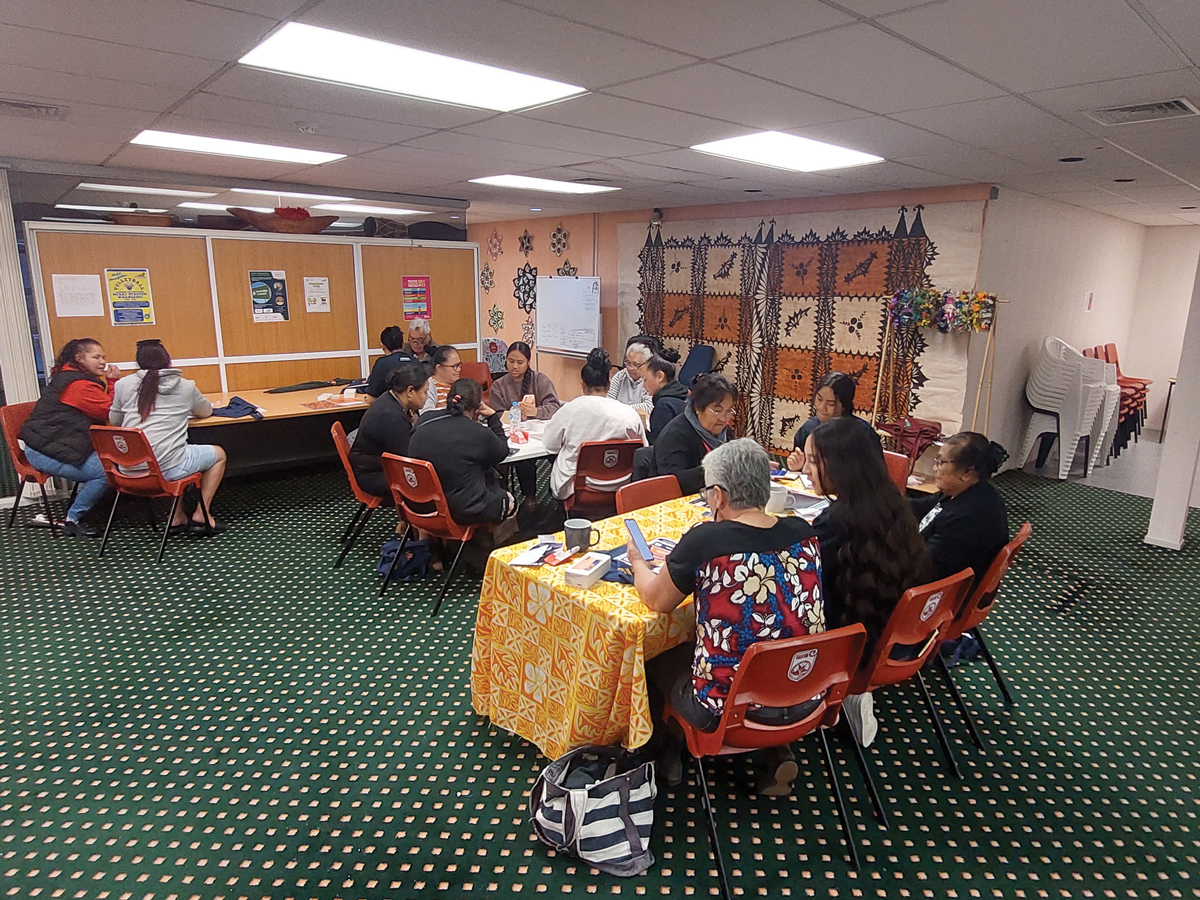
Moana Connect is an Auckland based organisation dedicated to connecting Pasfika People across Aotearoa. “We are committed to elevating the stories and experiences of our Moana families and communities. Our mission is to ensure their voices are heard and that change eventuates as a result.”
One of the programmes delivered by Moana Connect is DIGIFALE, a Pacific intergenerational programme that provides access, connectivity, and skills to improve digital health equity. The programme started in 2020 during COVID when Moana Connect identified that many of their elders were isolated and unable to connect to family, friends or church based spaces during lockdowns.
DIGIFALE identified that the easiest way to connect was via mobile phones and training started with how to make a phone call and send texts through to using Messenger and Zoom. Learners are also taught how to navigate patient portals to access and manage health online.
The approach taken was a step-bystep process beginning with phone/ device familiarisation and moving to more complex tasks using a ‘train the trainer’ approach to ensure programme sustainability.
“It is our young people that have been teaching our mamatua (older adults) and we are very grateful for the commitment they have made to the process. The knowledge exchange between mamatua and our younger generation has been quite spiritual. It represents a change of the more traditional roles in our community,” says Amio Matenga Ikihele, General Manager – Community & Innovations at Moana Connect.
“Our team has worked with more than 250 mamatua and 150 navigators across Aotearoa since establishing in 2020. Next year we will work with six new cohorts. The programme delivery ensures our mamatua are equipped with the skills and knowledge needed to navigate a digital world. The training has been provided at community hubs and churches in a range of regions across the country and is delivered in their own languages.
In addition to digital learning, the programme has brought people together to learn and share, which helps reduce the impacts of social isolation”.
Follow up research outlines the benefits that mamatua who participated in the programme found once they were confident using their mobile phone. Six subthemes were identified:
- quick access to people and information
- connection with family and friends
- connection to church
- connection to Niue and the world
- connection with health services and
- no mobile phone means no connection.
Texting and making phone calls were the most common digital skill mamatua were able to perform. YouTube was also the most common app mamatua used to access online content such as church sermons, cultural music videos, and content related to Niue:
I can ... turn the phone on, put it on the message, send the message to wherever I want to send the message to. If I can’t send the message, I go on the viber, send it on the viber, or use the messenger to send on messenger ... but mostly one easy way, I just call, I just give a ring on the phone. (Sefa, mamatua taane, 60–64 years.)
Interestingly, one mamatua used Google to assist his literacy, checking for spelling before sending messages to individuals:
A challenge for me is spelling ... sometimes I struggle to spell so I use google and google what’s the spelling of this word and I put it into a phrase. (Vaka, mamatua taane, 65–69 years.)
DIGIFALE is funded by the Digital Literacy Training Fund.
Behind the name
Fale which is ‘house’ or ‘building’ in several Pacific languages, is a space where people connect whether at home, church, school or shopping.
We are always connecting and sharing in these spaces, which has now transitioned into the digital sphere. With health services, online shopping and Government agencies being increasingly digitised, it is the young people within a fale who help guide or navigate elders onto these new digital platforms. Hence the fusion ‘DIGIFALE’.
Our vision is every fale benefits from being a DIGIFALE.
